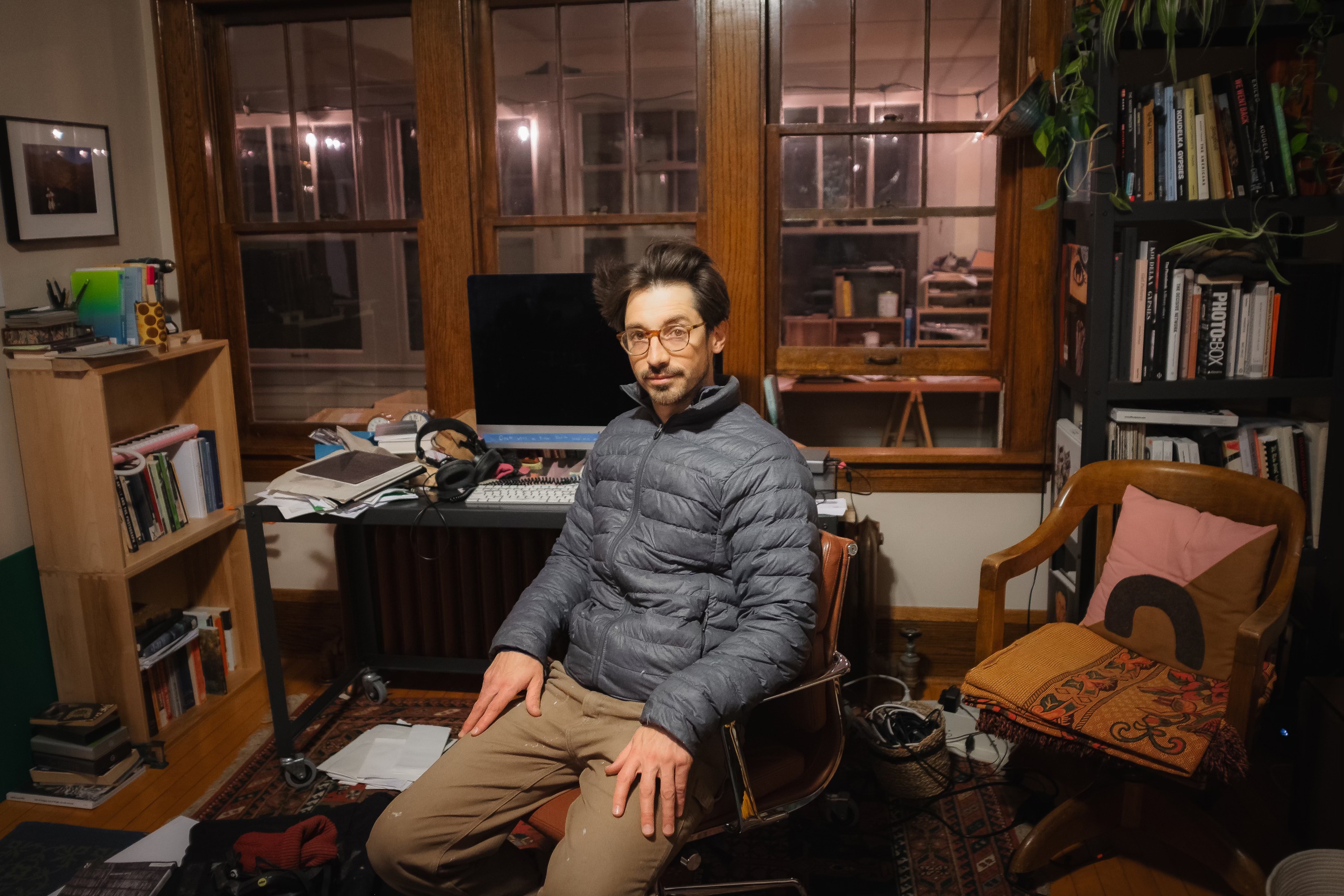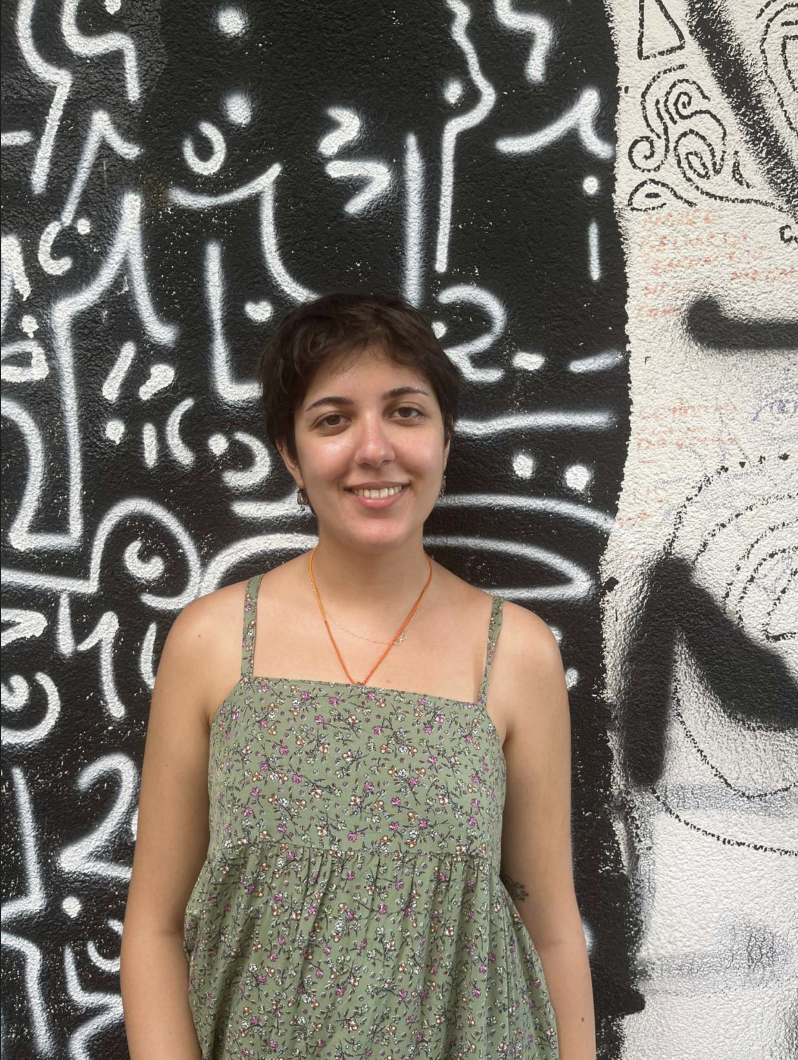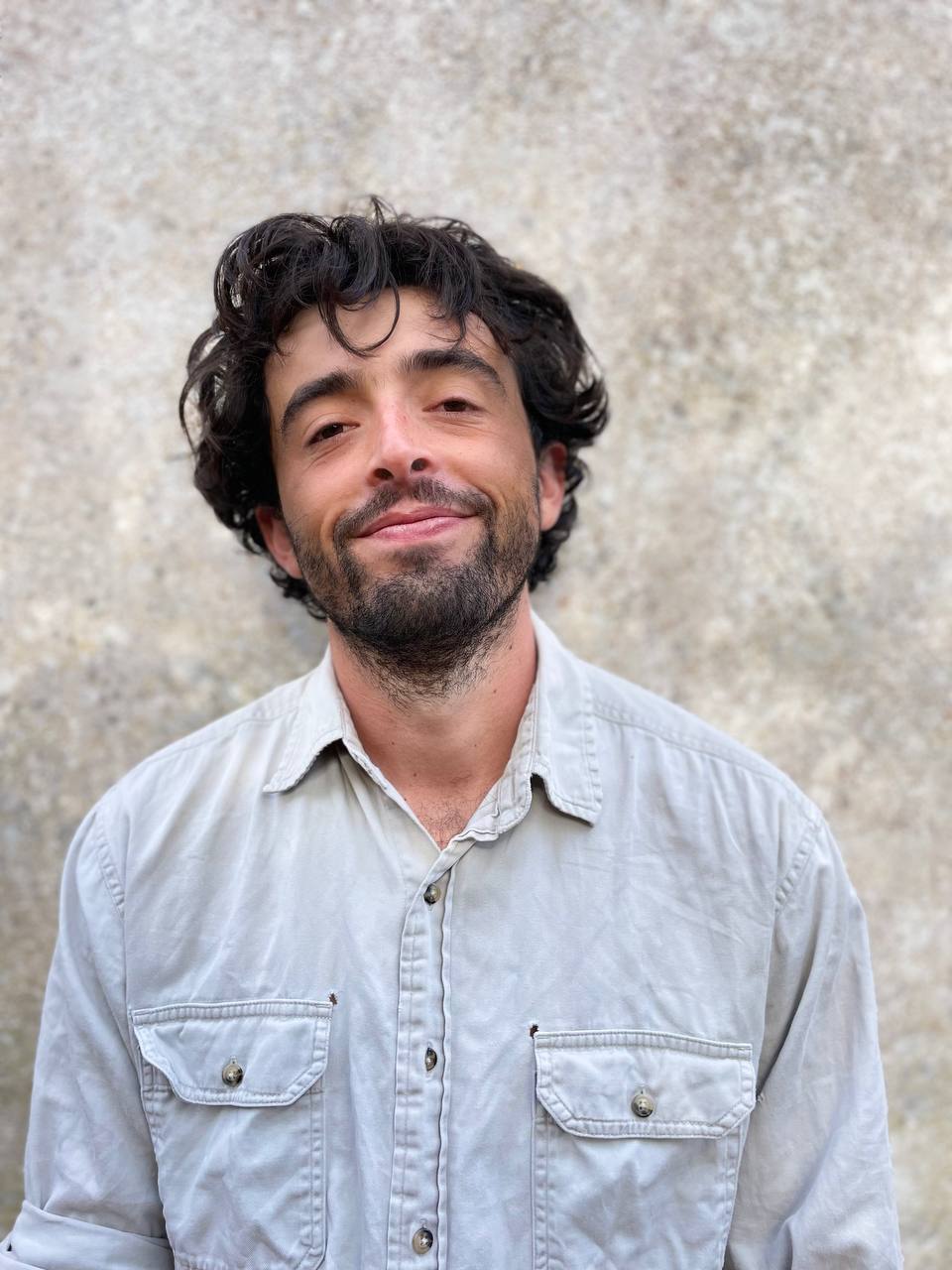Fall 2024 Cohort
In academic year 2024-2025, History of Consciousness welcomes three new students to the department: Brian Kantor, Helin Kotan, & Nicco Tiburcio. Read about their proposed research foci below.
|
he/him |
I am an artist and scholar from Minneapolis, Minnesota, with an undergraduate degree in anthropology and environmental studies (St. Olaf College, 2010) and a master’s degree in science, technology, and society (University College London, 2016).
Through my career I’ve developed a creative and intellectual practice that spans critical humanities and generative art including photography, printmaking, book arts, and sculpture. This practice speaks to my academic background and related penchant for questioning convention. It also bears the influence of time I have spent teaching English in Spain, studying climate science in arctic Siberia, doing research at BBC Television’s headquarters in London, UK, and building cabinets in a carpentry shop. As a PhD student I plan to delve further into the fields of science and technology studies, social theory, visual studies, and history. I'm interested in the construction of knowledge, the rhetoric of authority and expertise, and experimental practices that hew towards a conscientious and ethical engagement with our complex world. One case study I consider promising is documentary photography and the artist photobook monograph, a genre of creative and communicative practice that resonates with work in the humanities relating to alternative theorizations of history, time, temporalities, and cultural narrative. |
|
she/her |
I graduated from Middle East Technical University in Ankara, Turkey, with a degree in Sociology in 2021. Previously, I received my Master's degree in Modern Turkish History at Boğaziçi University in Istanbul, Turkey, where I wrote my thesis on rural-to-urban Kurdish migration. My desire to broaden my research scope has significantly influenced the topic I wish to explore during my doctoral studies. |
|
he/him |
My work focuses on the ecology of practices that assembles and sustains mines taken as “degenerative devices”: a set of shared technical infrastructures, knowledge claims, legal frameworks, economic plans, work management schemes and territorial control mechanisms that discipline bodies, engineer landscapes and institute social habits of relating to both humans and more-than-humans in specific – often damaging – ways. This entails questioning and describing the colonial legacy of past and present subsoil exploitations, asking more broadly how colonial dwelling, through processes of original accumulation, is currently performed and maintained in a worldwide context of energy transition and digital expansion. |
 Brian Kantor
Brian Kantor Helin Kotan
Helin Kotan Nicco Tiburcio
Nicco Tiburcio